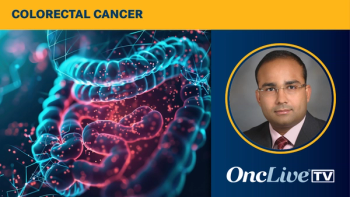
Dr. Anderson on Superoxide Dismutase Mimetic GC4419 in Treating Patients With Oropharyngeal Carcinoma
Carryn Anderson, MD, assistant professor of Radiation Oncology, University of Iowa, discusses a phase Ib/IIa study of superoxide dismutase mimetic GC4419 to reduce chemoradiotherapy-induced oral mucositis in patients with oral cavitiy or oropharyngeal carcinoma.
Carryn Anderson, MD, assistant professor of Radiation Oncology, University of Iowa, discusses a phase Ib/IIa study of superoxide dismutase mimetic GC4419 to reduce chemoradiotherapy-induced oral mucositis in patients with oral cavitiy or oropharyngeal carcinoma.
Superoxide dismutase mimetic GC4419 is a drug with a mechanism that rapidly and selectively converts superoxide to hydrogen peroxide. According to Anderson, this is important because superoxide contributes to the downstream cascade of oral mucositis that occurs in patients receiving radiation therapy. The drug's mechanism actually mimics enzymes that already naturally occur in the body.
As a result, normal tissues are protected from radiation-induced superoxide burst that occurs whenever patients are treated with chemoradiation, explains Anderson.



































